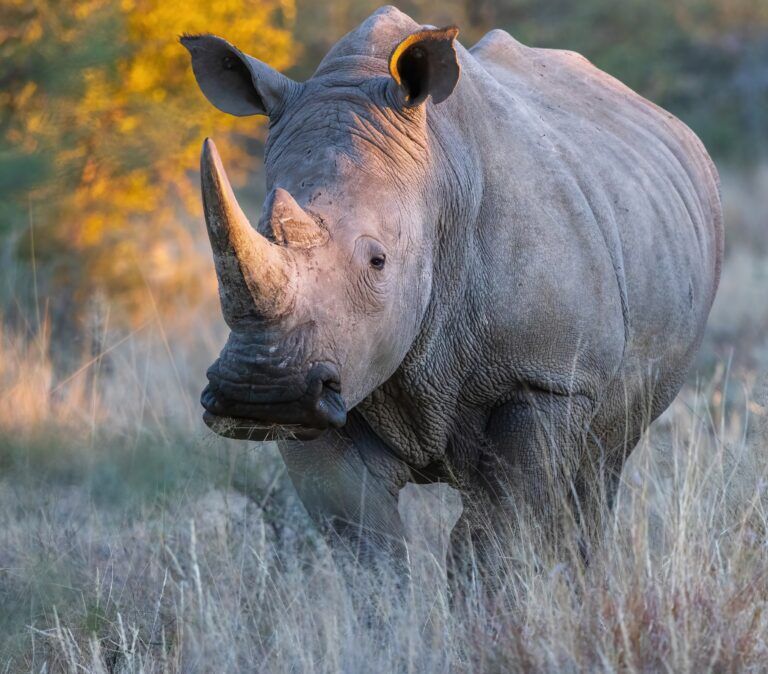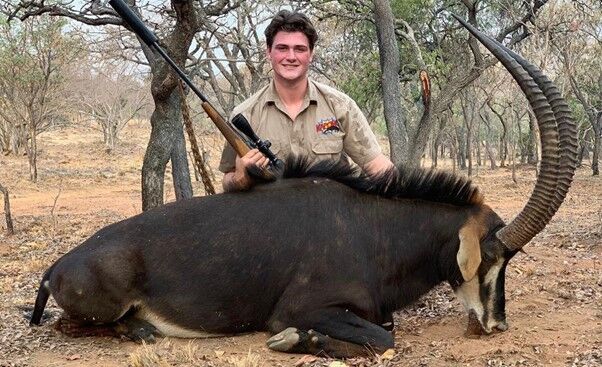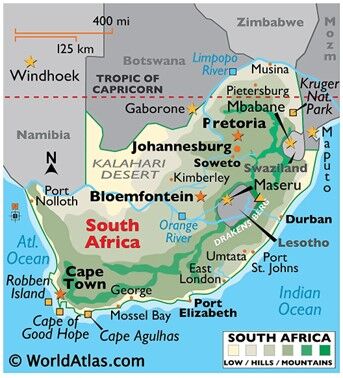Few experiences test our skills and resolve like hunting in South Africa’s wild landscapes. With the legendary Big 5: Elephant, lion, leopard, rhinoceros, and Cape buffalo, South Africa draws hunters from around the world searching for the ultimate challenge. But among these iconic species, one question stands out: what is the hardest animal to hunt in South Africa?
As we explore the answer, we’ll look at the unique demands of tracking Africa’s most elusive and dangerous game. From dense bush to open savannah, each hunt offers a different level of difficulty. Understanding what sets these animals apart helps us appreciate the preparation, patience, and expertise required for a successful African hunting safari.
[DYNAMIC-BLOGTABLEOFCONTENT]

Key Takeaways
-
South Africa’s Big 5—elephant, lion, leopard, rhinoceros, and Cape buffalo—each present unique challenges, but Cape buffalo and leopard stand out as especially difficult to hunt due to their danger and elusiveness.
-
Hunting difficulty is influenced by factors such as animal physicality, intelligence, habitat, and adaptability, often requiring hunters to possess advanced skills and resilience.
-
Strict regulations and ethical considerations play a significant role in hunting certain species, particularly rhinos, adding legal and logistical challenges to the pursuit.
-
Success on a South African hunting safari depends on expert guidance, specialized equipment, and respectful adherence to conservation laws and safe hunting practices.
-
Dangerous game like hippopotamus and crocodile offer additional challenges, highlighting the need for adaptability to varying environments and animal behaviors.
Exploring Big Game Hunting in South Africa
Big game hunting in South Africa sets the stage for some of the most well-known challenges in the world of hunting. The African Big 5, elephant, lion, leopard, rhinoceros, and Cape buffalo, dominate every list of sought-after trophies on an African hunting safari. Each species presents a distinct challenge, shaped by their behavior, natural habitat, and level of danger.
Guided African hunts bring hunters to landscapes as varied as thick bushveld and rolling grasslands, requiring a mix of adaptability and patience. For Cape Buffalo hunts, hunters track animals known for unpredictable charges and thick herd formations. Elephant hunts mean moving quietly across vast distances, often with limited cover and acute animal awareness. Lion hunts add another layer of unpredictability, as these animals test a hunter's resolve in open lands or dense undergrowth. Leopard hunting is all about patience and precision, often happening at night with bait and blinds due to the species' solitary and elusive patterns. Rhinoceros, with heightened security and anti-poaching laws, mean strictly regulated opportunities and a different set of challenges.
Those looking for more than the Big 5 can experience Dangerous Game hunts, which expand the list to include crocodile and hippopotamus. These African hunts require strategic planning and sharpened reflexes, especially since each animal’s habits change dramatically from region to region.
Outfitted and guided African hunts support safety, making use of professional guidance and local regulations. We arrange packages that suit different skill levels, always focusing on maximizing hunting opportunities and respecting game laws. And if you're after an iconic hunting safari in South Africa, there's real value in tailored itineraries that connect hunters with specific game and terrain.
Here's a breakdown of the main traits of the Africa Big 5 and key considerations:
| Species | Terrain | Challenge | Notable Risk |
|---|---|---|---|
| Elephant | Bushveld, Savannah | Cover large distances, keen senses, thick cover | Aggression, size |
| Lion | Grassland, Bush | Unpredictable, powerful predators | Charge, speed |
| Leopard | Rocky outcrops, Bush | Nocturnal, elusive, difficult to track | Stealth, surprise |
| Rhinoceros | Open plains, Bush | Heavily protected, requiring strict compliance | Charge, weight |
| Cape Buffalo | Wet areas, Bush | Herd mentality, quick to agitate, infamously tough | Aggression, herd |
Choosing a guided hunting safari in Africa means trusting professionals who handle logistics, adhere to regulations, and share deep knowledge of the land. We use this expertise to help hunters stay safe and increase success rates, whether they're targeting the Big 5 or seeking unique experiences with Dangerous Game hunting adventures. And while each animal challenges hunters in a unique way, the real test lies in matching skills to the environment, turning every African hunting safari into a personalized, unforgettable adventure.

Criteria for Determining Hunting Difficulty
Identifying the hardest animal to hunt in South Africa means weighing several critical factors. Elite Game Hunting and Africa Big 5 quests bring unique challenges that test even skilled hunters. Below, we break down the primary criteria that determine the true difficulty level of each pursuit.
Physical Strength and Agility
Physical strength and agility influence an animal’s ability to evade hunters during African hunts. Elephants use their size and power to travel long distances, making tracking demanding. Cape buffalo, known for sudden charges, require quick footwork and fast reactions, which complicate Cape Buffalo Hunts. Leopards move with stealth, quickly disappearing into brush, turning big game hunting into a continuous test of stamina.
-
Elephants: Capable of moving 40–50 km per day, needing sustained tracking
-
Cape buffalo: Can run up to 57 km/h for short bursts, forcing hunters to stay alert
-
Leopards: Skilled climbers, often leap several meters to escape, making recovery challenging
Intelligence and Elusiveness
Intelligence and elusiveness make African hunting safari species particularly difficult targets. Hunting in Africa demands tracking animals that adapt and change behavior to avoid pursuit. Lions work in coordinated groups, often flanking or circling hunters, which increases risk and complexity. Rhinos possess sharp senses and unpredictable movements, raising the stakes. Leopards display extreme caution, preferring nocturnal movement or thick cover, requiring patience during guided African hunts.
-
Lions: Use pride tactics and rarely move alone when pursued
-
Rhinos: Possess acute hearing and can detect unfamiliar smells quickly
-
Leopards: Nocturnal by nature, spending much of the day in hiding
Habitat and Environment Challenges
Habitat and environment create unpredictable complications for Hunting Safari in South Africa. Dense bush, varied climates, swamps, and rivers hinder tracking and safe pursuit. In many Game Hunting Safaris, terrain shifts from open Savannah to thick woodland in a single day. Crocodiles and hippos thrive in water systems with low visibility, so African hunting safari packages adjust strategies as hunters deal with rapid habitat changes.
-
Savannah: Open visibility but greater cover required for approach
-
Bushveld: Limited sightlines, often less than 20 meters
-
Wetlands: Water levels and mud slow movement, especially during Dangerous Game hunts
By weighing these criteria, our African Hunting Safari Broker teams match hunters with experiences suited to their skillsets and preferences, ensuring each adventure pushes the limits within a safe, expert-guided environment.
Notorious Challenging Animals to Hunt
Game Hunting in South Africa puts hunters face-to-face with the continent’s most resilient and unpredictable wildlife. Each species from the Africa Big 5 presents a distinct set of challenges that test skill, patience, and adaptability during an African hunting safari.
The Cape Buffalo: The Black Death
Cape Buffalo Hunts in South Africa draw experienced hunters because of the animal’s size, strength, and aggressive behavior. We see Cape buffalo standing over 1,000 kg, moving through thick bush in unpredictable ways. Hunters often face short distances—less than 50 yards—before a decisive shot is needed. Injured buffalo may circle back, turning a hunt into a life-threatening encounter. With acute sensing and social instincts, Cape buffalo react as a herd, raising the stakes for every approach. Hunters value guided African hunts to manage the risks tied to hunting Cape buffalo safely.
Leopard: Master of Stealth
Leopard hunting in Africa challenges even the most skilled hunters. Leopards roam at night, making most of their movements unseen, clearing the plate for a true test of stealth during an Africa Big 5 hunt. These big cats use thick brush for cover, preferring to stalk and ambush rather than cover open ground. Successful leopard hunts require hours of patient waiting in carefully positioned blinds. Their intelligence and ability to detect the faintest scent or sound mean one misstep sends them vanishing into the darkness. For these reasons, only a small percentage of hunters secure a leopard trophy on their first African hunting safari.
Hippopotamus: Unexpected Aggressor
Hunting hippopotamus during African hunts often surprises those new to the landscape. Hippos, despite spending most hours in water, display territorial aggression on land, especially near rivers and watering holes. With bodies weighing up to 1,500 kg and capable of moving quickly both in water and on muddy banks, these animals account for more human injuries in Africa than lions or buffalo. Our Hunting Safari in South Africa itineraries for hippo focus on safety and precise timing, since startled hippos can turn a tranquil river hunt into a demanding and dangerous situation.
Hunters looking to add these notorious species to their game hunting listings often seek out African Hunting Safari Brokers who understand the unpredictable elements tied to each pursuit. When organizing a big game hunting experience in South Africa, knowing the behavioral patterns and danger level of each animal helps shape both successful outcomes and lasting memories.
What Makes an Animal the Hardest to Hunt?
Determining which animal is the hardest to hunt in South Africa involves examining more than just size or aggression. We factor in regulations, habitat, physical ability, and the need for expert knowledge. For those looking to navigate game hunting or book African hunts, understanding these elements sets realistic expectations.
Hunting Regulations and Ethical Considerations
Regulations play a major role in African hunts. Strict quotas, closed seasons, and permit requirements control the numbers and ensure sustainability. For example, African hunting safari rules for endangered species like rhino create complex barriers. Hunters follow established guidelines to keep populations stable and habitats thriving. Ethical hunting means respecting these legal frameworks, practicing fair chase, and promoting conservation during each guided African hunt.
Equipment and Skills Required
Big game hunting in South Africa demands specialized equipment and advanced skills. We use reliable rifles and trusted optics, ensuring safety and accuracy on every hunting safari in Africa. Training in marksmanship, animal tracking, and bushcraft is vital—especially for Africa Big 5 hunts, where situations change fast. Cape Buffalo hunts, for example, might call for heavy-caliber firearms due to unpredictable charges, while leopard hunting tests patience and shot placement.
Essential Gear for Difficult Game Hunts
-
High-caliber rifles – suitable for animals like elephant and buffalo
-
Premium optics – for spotting elusive species such as leopard
-
Protective clothing and boots – helps traverse varied terrain
-
Satellite or two-way radios – vital for communication on remote guided African hunts
Expert guidance connects all these elements. Seasoned professionals share insights on animal habits, regulations, and tactical planning, bringing value to every hunting safari in South Africa. Those comparing hunting packages should assess not just species, but the depth of preparation and experience required.
Conclusion
Hunting in South Africa challenges us in ways that go far beyond tracking and marksmanship. Each animal demands a unique blend of preparation, adaptability, and respect for the wild. Our experiences in the bush remind us that true success isn't just about the hunt, it's about understanding our place in this remarkable landscape and upholding the principles that keep it thriving for future generations.
Frequently Asked Questions
What are the Big 5 animals in South African hunting?
The Big 5 refers to the elephant, lion, leopard, rhinoceros, and Cape buffalo. These animals are known for being the most challenging and dangerous to hunt in Africa due to their size, strength, and unpredictable behavior.
Which of the Big 5 is considered the hardest to hunt?
The answer varies, but many hunters believe the leopard is the hardest to hunt because it is elusive, primarily nocturnal, and extremely wary of humans. Cape buffalo and elephant are also contenders due to their unpredictable nature and the physical demands required to track them.
What makes hunting Africa’s Big 5 so challenging?
Hunting the Big 5 involves navigating vast and varied habitats, dealing with the animals’ intelligence and unpredictable reactions, and sometimes managing dangerous encounters. It requires physical stamina, patience, expert tracking skills, and a deep understanding of animal behavior.
Are special licenses or regulations required to hunt Big 5 animals?
Yes, all Big 5 hunts in South Africa are strictly regulated. Hunters must obtain permits, follow quotas, and adhere to strict laws designed to protect wildlife populations and promote ethical, sustainable hunting practices.
Do you need a professional guide for a Big 5 hunting safari?
Absolutely. South African law requires that all Big 5 hunts are conducted with a licensed professional hunter. Guides have vital expertise in tracking, safety, and understanding animal behavior, ensuring both ethical practices and hunter safety.
What equipment is essential for hunting the Big 5?
Big 5 hunting requires high-caliber rifles, quality optics, durable clothing, and sometimes protective gear. Specialized equipment is recommended to ensure safety, accuracy, and adherence to hunting regulations.
What are Dangerous Game hunts?
Dangerous Game hunts in Africa include not just the Big 5, but also animals like crocodiles and hippopotamuses. These hunts are challenging and require advanced planning, fast reflexes, and strict safety measures.
How does habitat affect the difficulty of a hunt?
Different habitats, such as dense bush or open savannah, present unique challenges. Dense bush can make tracking and visibility difficult, while open savannah offers little cover, requiring careful stalking and expert marksmanship.
Why are ethical and sustainable hunting practices important?
Ethical hunting helps conserve wildlife populations and supports local communities. Following regulations and hunting sustainably ensures that Africa’s iconic species can be enjoyed by future generations and that tourism benefits local economies.
Can hunting safaris be customized for different hunters’ skills?
Yes, professional outfitters in South Africa tailor hunting experiences based on a hunter’s skills, interests, and physical abilities. This ensures both a challenging and rewarding adventure while maintaining safety and ethical standards.
